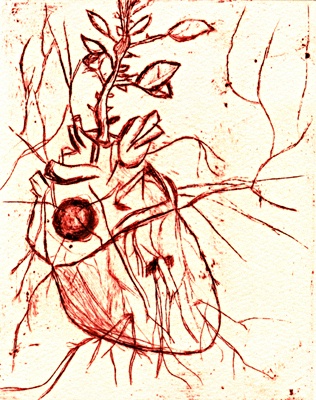All Nonfiction
- Bullying
- Books
- Academic
- Author Interviews
- Celebrity interviews
- College Articles
- College Essays
- Educator of the Year
- Heroes
- Interviews
- Memoir
- Personal Experience
- Sports
- Travel & Culture
All Opinions
- Bullying
- Current Events / Politics
- Discrimination
- Drugs / Alcohol / Smoking
- Entertainment / Celebrities
- Environment
- Love / Relationships
- Movies / Music / TV
- Pop Culture / Trends
- School / College
- Social Issues / Civics
- Spirituality / Religion
- Sports / Hobbies
All Hot Topics
- Bullying
- Community Service
- Environment
- Health
- Letters to the Editor
- Pride & Prejudice
- What Matters
- Back
Summer Guide
- Program Links
- Program Reviews
- Back
College Guide
- College Links
- College Reviews
- College Essays
- College Articles
- Back
Paperclips,
I am a very organized person.
I like things to be clean, to be precise, to make sense, and especially to be color coded and matching.
My biggest thing was paperclips.
I had paperclips for everything. For specific classes, and within those classes specific types of projects. I had different colors for different days, or different emotions, or people depending on who was getting the paper. I know this sounds like psychopathic bulls***, or an obsessive, physiological, disorder, but that’s how I was.
When I was eighteen I was sideswiped by an SUV while on my way to deliver a ten page research paper to a professor.
The paperclip was red, because he was an older gentleman, it was a Tuesday, and it was an important research paper, naturally.
I woke up in a hospital bed blind, I had no idea where anything was.
I’m sure I could have screamed, I could have cried, I could have cursed at a God and demanded to know why, but instead I sat there. Coherent and alert on my hospital bed, glad that I could not see how grotesque and useless my face probably looked. Making a point to not think about paperclips.
Was I hungry? The doctors would ask. No. Was I in pain? Nothing I couldn’t live with. Was I tired? Not particularly, I had too much to do. Was I adjusting well? Not at all. Wasn’t I glad I was going to be okay? Not really, no.
Richard laughed at me when he met me, he told me that I was the craziest blind bat he’d ever met, and he’d met a lot, working in a hospital.
I attempted a glower, though I didn’t know where to put it, so it was a moot point. He asked if I was okay, if I needed anything. I told him to tell me what he looked like.
“Why?” He asked, clearly confused on why a blind person would need this information. I told him I needed to know, I needed to see something inside my head. Something other than paperclips.
He was six foot, with dark brown hair shaved off and matching colored eyes. He had straight teeth that were white (he admitted that he was probably too invested in dental hygiene). The only thing I could tell about him without him telling me directly was that he had an easy laugh and very nice hands.
He told me to stand up slowly, that he’d be right next to me if I should fall, I assured him that I was blind, not missing a leg, and could do just fine on my own. He laughed at me when I fell over. I complained, “I thought you said you were going to be there if I fell?”
“I didn’t say I’d catch you, I’ll just be here to help you up.” His method was that I needed to adjust to not being able to see, for when I was on my own.
That thought actually scared me.
Richard was impossible, easy going, funny, and easy to see. He called me crazy when I told him how I related paperclips to life, to everything, really. He told me to relate them to how I feel. Sad? Blue paperclips. Devastated? Purple. Happy is yellow, angry is red, neutral is green, black is emptiness. And so on.
“What color paperclips do you see when I mention the beach?” He asked. I answered pink. “And when I mention your room?” I frowned and said blue.
“What color do you see when I mention swings?” I shrugged and said green. “What about when I do this?” He asked, and flicked my arm.
I jumped, “Orange paperclips.”
He laughed, “And this?” He squeezed my hand, “Pink, again.” I pictured him nodding, not that I knew what he looked like. But I knew he was nodding. “And this?” He leaned forward and kissed me.
“Yellow.”
They sat me down on a foreign bed one day and told me they had some bad news.
“What?” I smiled, “I’ll never see again?” This was one of the first things Richard said to me.
My mother’s voice was soft and off tone, human. She told me it had to do with Richard.
“Richard?” I repeated in a confused voice, as if I’d never heard his name before. Which was ridiculous. Why would we need to talk about him? “What about him?”
They used the word ‘gone’ when they said it. ‘Gone’ as if he was only something temporary, as if they’d expected this to happen. ‘Gone’ like it was only naturally. I guess it is. But that was all they would say, he was ‘gone’. Where? Where could he have ‘gone’ that he wouldn’t come back? Wouldn’t come back for even me?
“How are you feeling?” My mom asked me. I couldn’t answer; all I could do was stare into the falling black paperclips.

Similar Articles
JOIN THE DISCUSSION
This article has 0 comments.
